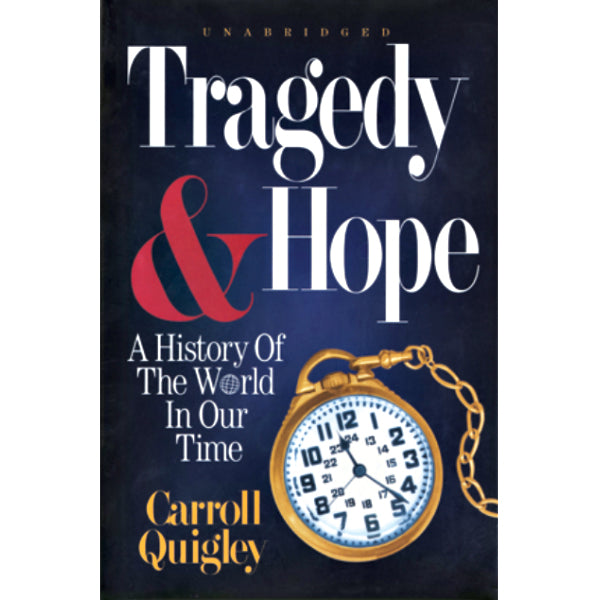Tragedy and Hope: A History of the World in Our Time by Carroll Quigley
Tragedy and Hope: A History of the World in Our Time by Carroll Quigley
Couldn't load pickup availability
When Tragedy and Hope appeared in 1966, most readers had no idea what they were looking at. Its author, Carroll Quigley, wasn’t speculating from outside the halls of power — he had been trusted within them. As a Georgetown professor, consultant to the Defense Department, and lecturer to the State Department, Quigley was allowed access to archives, documents, and conversations that ordinary historians never saw. He chose to publish the record.
Across 1,300 pages, Quigley confirmed that financial dynasties and their central banking networks operated with long-term aims that eclipsed national politics. He described how credit creation, international agreements, and institutions like the Bank for International Settlements shaped not just markets but the policies of entire governments. These weren’t guesses — they were observations from a scholar who had studied the files and spoken with the players.
The scope of Tragedy and Hope is staggering. It reconstructs two world wars, the Great Depression, the rise of fascism and communism, the Cold War, and the nuclear rivalry — but through a different lens. A cabinet shuffle in Europe is linked to a credit maneuver in New York; a revolution in Russia is tied to flows of capital arranged in London; an arms race is connected to meetings few outside banking circles ever knew took place. The map of the century is redrawn, and once seen, it cannot be unseen.
Quigley called it a tragedy that such patterns brought death and upheaval, but a hope that exposing them might prevent repetition. For readers who want more than headlines or slogans, Tragedy and Hope stands as the one document where an insider set down, in plain words, how the world was actually governed. (1997ed, 1,348pp, hb)

